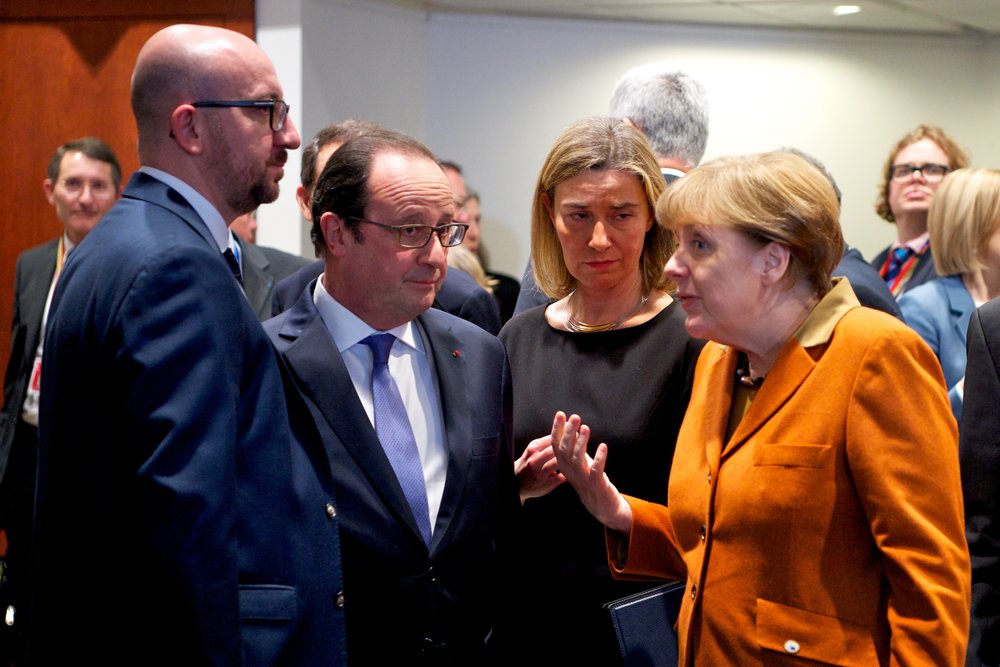Europe's lack of strong leadership leaves it vulnerable to terrorism

Terrorist groups know that well-timed attacks cause political upheaval and exploit people’s fears, but liberal democracy is often strongest when wounded.
Europe is in bad shape to repel a terrorist threat that has moved from its Middle East doorstep into its living room. Political divisions, public disenchantment, economic weakness, lack of leadership and acute international instability are combining to make this a uniquely vulnerable moment for the western democracies.
The nature of the threat – ubiquitous, hidden, improvised and randomly targeting civilians – is all but impossible to defend against. When a “lone wolf” attacks, as in the Bastille Day truck killings in Nice last July, the problem is magnified. It is still unclear whether the driver of the Berlin lorry was acting alone or what his motive was.
Islamic State (ISIL) and its Europe-based sympathizers are fully aware of the potential of well-timed outrages to cause political upheavals, by exploiting people’s fears and the apparent inability of political establishments to protect them.The Berlin assault could have happened anywhere. It almost did. Police foiled an attack on a Christmas market in Ludwigshafen, in south-west Germany, by a 12-year-old German-Iraqi boy. Last month, French authorities arrested five people believed to be plotting attacks on a Christmas market on the Champs-Élysées.
Open-door immigration policy
Even Angela Merkel is not immune to the political backlash when terrorists strike. Dissent within her ruling coalition over her open-door immigration policy and the fury of Germany’s racist, xenophobic fringe parties are dragging her to the political right. This dynamic, if it continues, could place her autumn re-election prospects in doubt.
Far greater uncertainty attends the outcome of next spring’s presidential elections in France, where Marine Le Pen, the Front National leader, was already expected to fare well. Observers suggest new terrorist attacks in France, where anti-Muslim feelings run high, could decisively tip the contest in favor of the FN.
Similarly reactive distortions are also on the cards in the Netherlands, where voters will choose a new government in March. Geert Wilders, an Islamophobic extremist, is currently leading the polls.
Understanding terrorist tactics is not rocket science.
Consequent and rising hate crime victimizing Muslims (and other religious and ethnic minorities) is grist to the terrorist mill.
On the other hand, predictions that electorates can be panicked by violent extremism into supporting political extremism probably underestimate the democratic solidarity often exhibited in the wake of terrorist atrocities.
The defiant reaction of Parisians to 2015’s Charlie Hebdo and Bataclan attacks are cases in point. Liberal democracy is often at its strongest when most badly wounded.
Merkel apart, Europe is rendered more vulnerable by its perceived lack of strong, dependable leaders. In France, François Hollande is the least well-regarded president on record. Italy’s reformist prime minister has resigned. Spain seems incapable of agreeing on who should lead it. In Britain, Theresa May became prime minister without a vote.
This deficit of political legitimacy extends to the EU, where Jean-Claude Juncker, the confrontational commission president, is discredited. The last European elections saw record low turnouts. And Brexit has thrown the EU into turmoil at the very moment when it should be fixing eurozone finances, dealing with the migration problem – and shoring up terrorist defenses.
Meanwhile ISIL, under pressure in Syria and Iraq, is openly attempting to take its fight to the “enemy” in Europe’s heartlands. And Europe cannot expect much help from an inwardly focused Donald Trump. It is uncertain whether Europe can cope.
(Source: The Guardian)
Leave a Comment